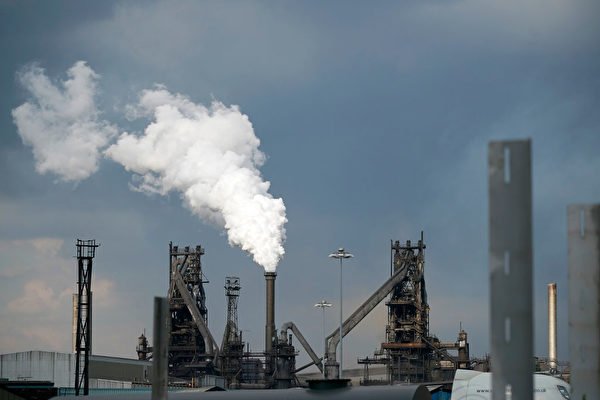British Steel announced on Thursday (March 27) that due to financial challenges faced by its Chinese parent company, Jingye Group, and increasing environmental expenses, as well as the failure to reach a rescue plan with the UK government, it plans to close two blast furnaces and steelmaking operations in Scunthorpe, northern England. Additionally, the company proposed reducing capacity at its steel rolling mill in Scunthorpe.
As the second-largest steel manufacturer in the UK, British Steel attributed the decision to the “highly challenging market environment, tariff imposition, and rising environmental costs associated with producing high-carbon steel.”
On Monday, the UK government wrote to Jingye Group offering funding to sustain the company’s operations and help transition towards more environmentally friendly production. Prior to this, British officials had been engaged in nearly two years of rescue negotiations with Jingye Group.
However, sources revealed that on Wednesday, Jingye Group rejected this proposal from the UK government.
According to the Associated Press, Jingye Group stated that despite investing over £1.2 billion since acquiring British Steel in 2020 to maintain operations, British Steel continues to incur daily losses of around £700,000 (approximately $900,000).
The decision by British Steel has been met with strong opposition from trade unions, who believe that this action will have a devastating impact on the British steel industry. At the same time, the unions are urging the government to help secure the company’s future.
Roy Rickhuss, General Secretary of the Community Union, said, “This is a dark day for our steel industry and our country. The closure in Scunthorpe will have a severe impact on steel-dependent communities, as the industry continues to directly support thousands of jobs and indirectly support even more through extensive supply chains.”
British Steel stated that negotiations are ongoing with the unions regarding the closure of blast furnaces and steelmaking operations, as well as the reduction in capacity at the rolling mill in Scunthorpe, which could potentially be implemented as early as June, putting around 2,000 to 2,700 jobs at risk.
During British Steel’s bankruptcy proceedings in 2020, Jingye Group acquired the company. In 2023, Jingye abandoned plans to build new facilities at British Steel and prepared to close two blast furnaces in Scunthorpe. Subsequently, negotiations between the UK government and Jingye aimed to avoid the layoff of 3,500 British Steel workers.
Last month, a report released by the Community Union proposed a decarbonization plan for British Steel, suggesting the retention of the existing two blast furnaces in Scunthorpe and the construction of two new electric arc furnaces, which would require an additional £200 million in government support to ease the transitional carbon costs.
The company had sought government support to invest in building two new electric arc furnaces to significantly reduce carbon emissions but after several months of negotiations, an agreement could not be reached.
According to the BBC, British Steel had hoped for a £1 billion government investment to sustain operations, but the government only provided £500 million.
In the post-World War II peak period, the UK’s steel industry was powerful, with production and technology leading globally, employing over 300,000 workers. However, over time, especially as impacted by Chinese steel dumping, the competitiveness of the British steel industry has been affected, leading to a reduction in production scale.
Currently, the industry directly employs approximately 40,000 workers, accounting for only 0.1% of the UK economy.

